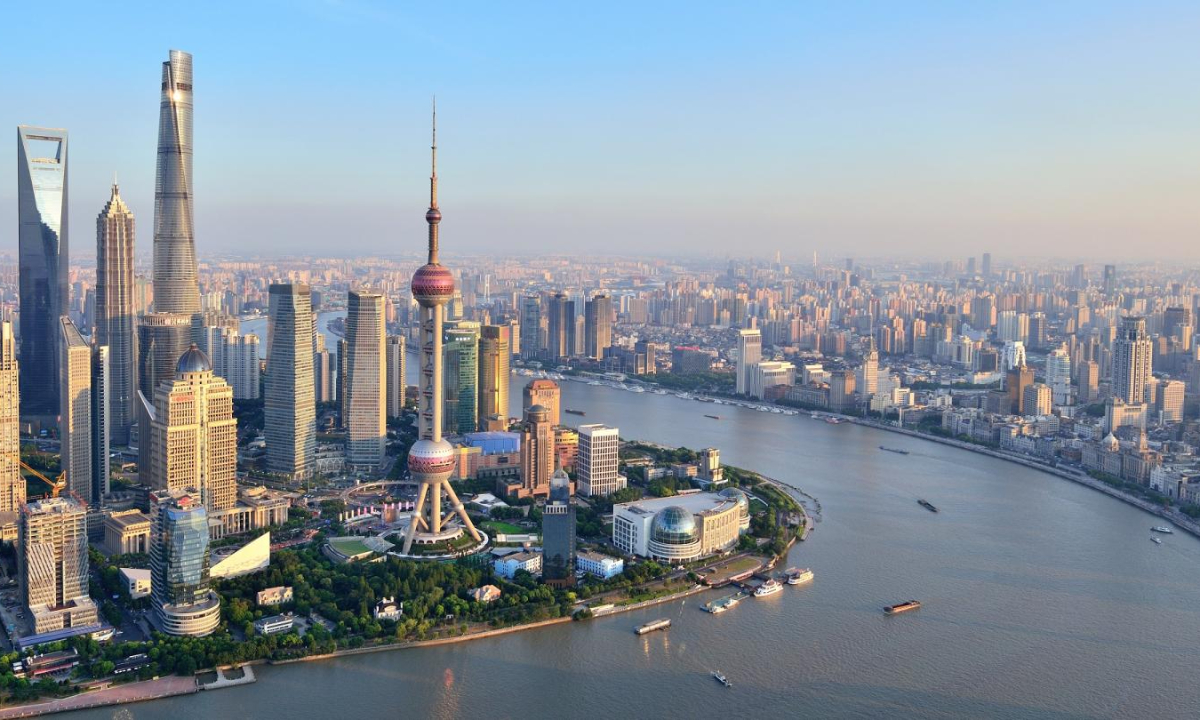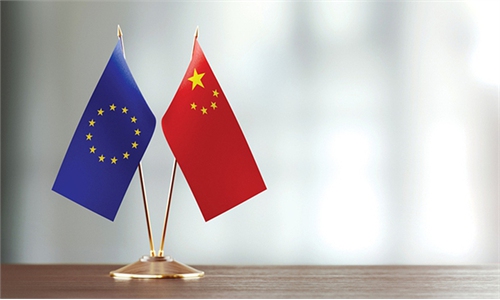Pulse on China’s economy: Global businesses flock to China, refuting ‘foreign capital flight’ claims

Lujiazui area in Shanghai Photo:Xinhua
On Friday, Chinese officials announced that 316 multinational companies have registered for the Qingdao Multinationals Summit scheduled for October in Qingdao, East China's Shandong Province. In Xi'an, Northwest China's Shaanxi Province, 385 foreign brands participated in the 2023 Euro-Asia Economic Forum, which kicked off on Friday. In Shanghai, nearly 700 global financial industry leaders gathered for the Bund Summit to discuss financial cooperation, while over 200 global leaders in the shipping and aviation industries attended the 2023 North Bund Forum - both started on Friday.
These all came on the same day and represent just a fraction of major trade and investment promotion events in a wide range of sectors China has held since the beginning of the year and plans to hold in the coming months. The enthusiastic participation of global business leaders coming to China for a dizzying number of events is a vivid illustration of their confidence in and commitment to the Chinese market.
However, this endless stream of global business executives coming to China has not stopped some Western officials and media outlets from depicting the Chinese market as losing its attractiveness for foreign investors. The Business Insider, a US online media outlet, reported on Friday that "capital flight out of China jumps to the fastest pace since 2015 as economy stumbles." In August, following her trip to China, US Commerce Secretary Gina Raimondo reportedly claimed that US companies have complained to her that China has become "uninvestable."
Chinese officials and analysts have firmly rebuked such claims and dismissed them as part of what appears to be an intensifying broader smear campaign by US and other Western officials and media outlets against China's economy, in an attempt to keep investment in their own countries.
"As the global economy is expected to slow, all countries are promoting and attracting investment. Some countries do not want to see capital flight and see that China remains attractive for [businesses]. So they are calling grapes they cannot eat sour," Dong Shaopeng, a senior research fellow at the Chongyang Institute for Financial Studies at the Renmin University of China, told the Global Times on Friday, noting that foreign investment in China has remained stable both in terms of total stock and new growth.
Foreign businesses are not just coming to China for meetings, but actually investing in China.
At the 20th China-ASEAN Expo, which concluded on Tuesday in Nanning, South China's Guangxi Zhuang Autonomous Region, 470 cooperation deals with a total investment of 487.3 billion yuan ($66.72 billion) were inked. At the China International Fair for Trade in Services earlier this month, deals were signed for 51 major projects worth about 104.5 billion yuan for just the Beijing-Tianjin-Hebei region.
News of major multinationals launching projects in various Chinese cities has also become ubiquitous. In Shanghai, the Xinzhuang Industrial Park saw 15 foreign businesses set up subsidiaries - including the opening of a Toyota research and development center and the completion of Solvay's China research and innovation center expansion project, according to media reports on Friday. In the first eight months of 2023, the park saw a total of $360 million in foreign capital, up 180 percent from 2021.
Meanwhile, in Suzhou, East China's Jiangsu Province, two major deals with a total investment of more than $400 million were launched in one day. On Wednesday, Swire Coca-Cola launched a beverage plant in Suzhou with a total investment of 2 billion yuan, the largest investment by the company in the Chinese mainland to date. On the same day, Adidas launched an autonomous delivery center in Suzhou, which has an investment of 1 billion yuan.
All these reflect global businesses' confidence in China's long-term economic development, Li Yong, a senior research fellow at the China Association of International Trade, told the Global Times on Friday.
Li said that foreign businesses are confident in the Chinese market not just because of its enormous size and long-term development potential, but also because of its stable policymaking that forms a predictable and stable business environment, in stark contrast to the aggressive and protectionist policymaking of the West.
"Talk of China's business environment deteriorating is delusional," Li said, drawing a contrast between China's open attitude and proactive efforts to listen to businesses and issue policy measures accordingly and the US' growing restrictions on them.
China has taken a slew of measures to stabilize foreign investment, including a 24-point guideline in August to optimize the business environment. In the latest move, a Chinese commerce official announced on Friday that a system will be launched at the end of the month to collect and handle issues and concerns raised by foreign businesses.



